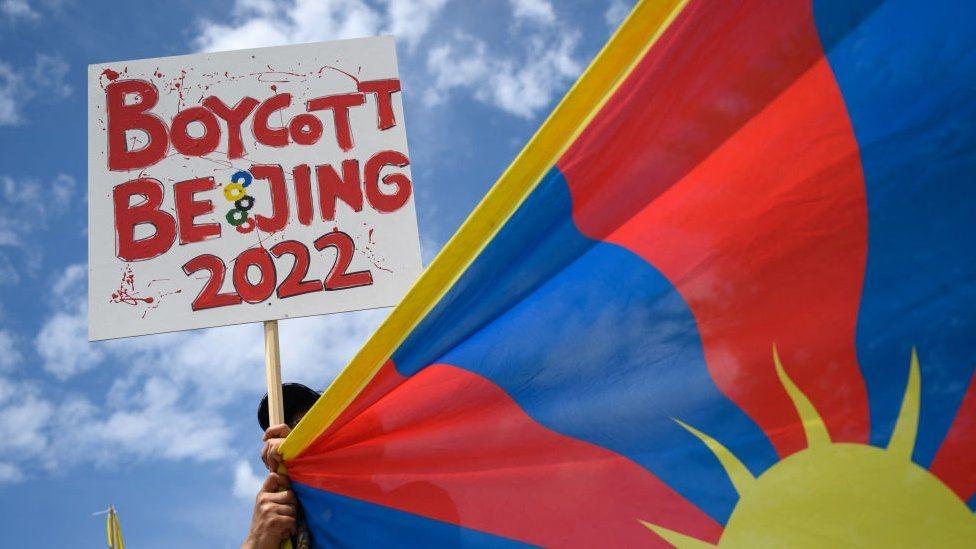UK and Canada join diplomatic boycott of China Winter Olympics
- Published
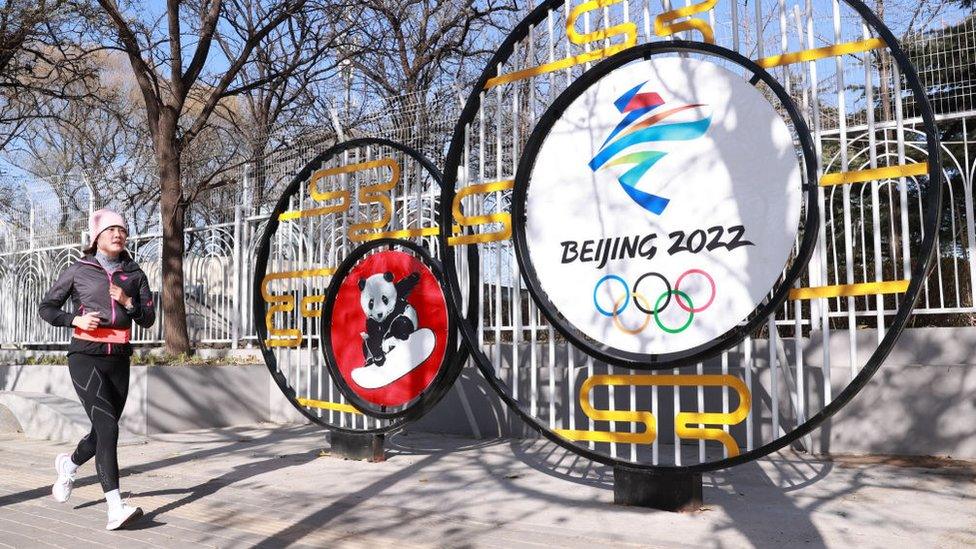
The US announced a diplomatic boycott of the Winter Games on Monday
The UK and Canada have become the latest nations to announce a diplomatic boycott of the Beijing Winter Olympics, due to be held in February 2022.
On Wednesday, UK Prime Minister Boris Johnson said no ministers will attend due to alleged human rights abuses in China, which Beijing strongly denies.
Canada followed suit later in the day, also citing human rights concerns.
It comes after similar announcements by the US and Australia earlier this week.
China has condemned the US for its decision and threatened retaliation, without giving further details.
Mr Johnson's announcement was made during Wednesday's Prime Minister's Questions, after former Conservative leader Iain Duncan Smith called for a "diplomatic boycott" of the major sporting event. Mr Johnson told MPs that he typically did not support "sporting boycotts".
In Ottawa, Canada's Prime Minister Justin Trudeau told reporters that the country's boycott will not "come as a surprise to China".
"We have been very clear over the past many years of our deep concerns around human rights violations."
Thomas Bach, president of the International Olympic Committee (IOC), has said that, despite the growing number of political boycotts, the IOC was pleased that athletes would still be able to take part.
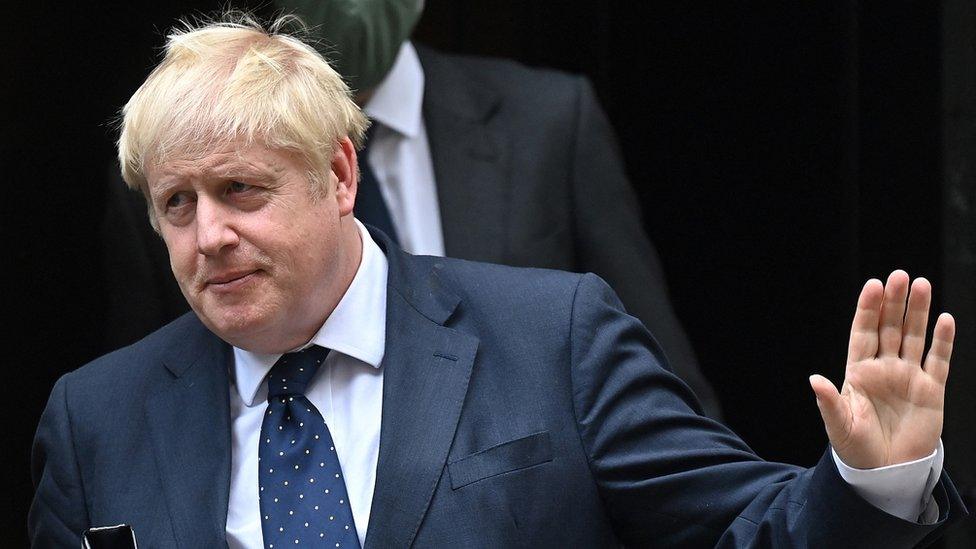
Mr Johnson said UK ministers would not be attending the games, citing human rights abuses by China
"The presence of government officials is a political decision for each government so the principle of IOC neutrality applies," he said.
In recent years, tensions have risen between China and several Western countries, over a number of diplomatic issues.
The US has accused China of genocide in its repression of the predominantly Muslim Uyghur minority in the western region of Xinjiang - an allegation China has repeatedly rejected.
Relations between Canada and China grew turbulent following the 2018 arrest in Canada of a top executive with Chinese tech giant Huawei at the request of US officials, and the subsequent detention of two Canadians in China. All three were released earlier this year.
Relations are also strained over China's suppression of political freedoms in Hong Kong, and because of concerns for the Chinese tennis player Peng Shuai, who has not been seen in public for weeks after she accused a top government official of assault.
The Women's Tennis Association last week suspended all tournaments in China because of "serious doubts" about Ms Peng's safety.
Australia, meanwhile, has increasingly come to view China as a security threat amid allegations that Beijing has interfered in Australian politics and society.
It has also raised concerns over two Australian citizens who remain imprisoned in China.
China has said that all allegations against it are fabricated.
At a daily briefing in Beijing, foreign ministry spokesman Wang Wenbin accused Australia of engaging in "political posturing".
"Whether they [government officials] come or not, nobody cares," he added.
Other countries - including Japan - are also said to be considering diplomatic boycotts of the games.
New Zealand has confirmed it will not send officials to Beijing mostly because of the coronavirus pandemic, but it also voiced concern over human rights issues in China.
Athletes get ready for the 2022 Winter Olympics near Beijing
- Published8 December 2021
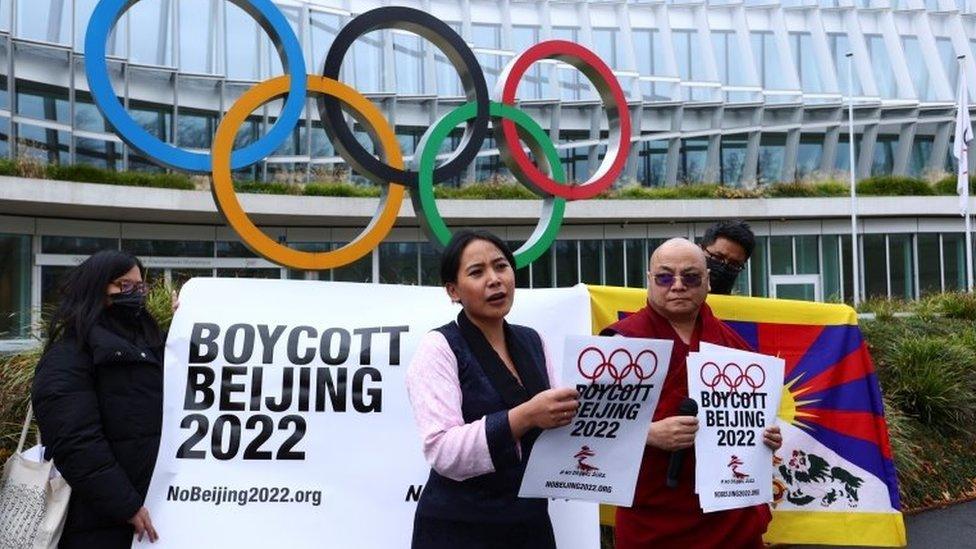
- Published7 December 2021
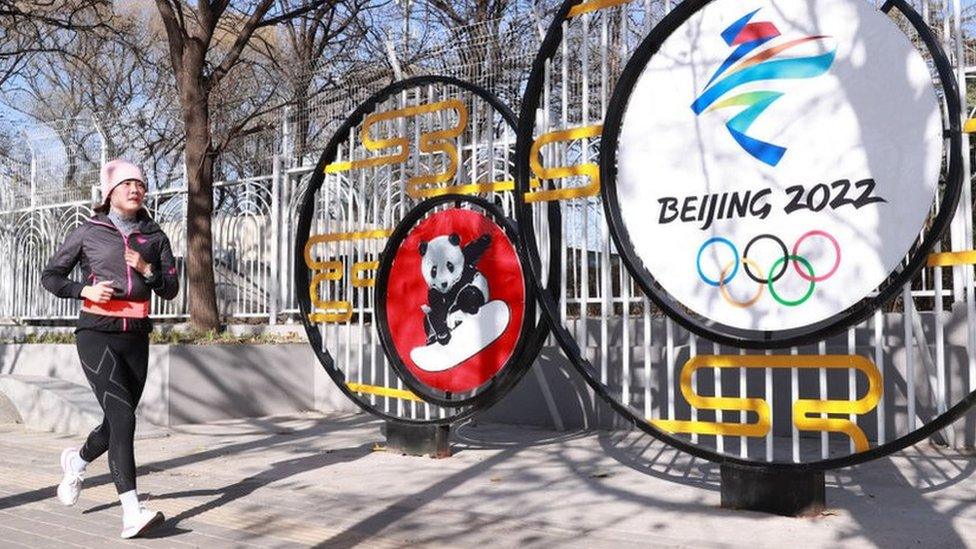
- Published7 December 2021
